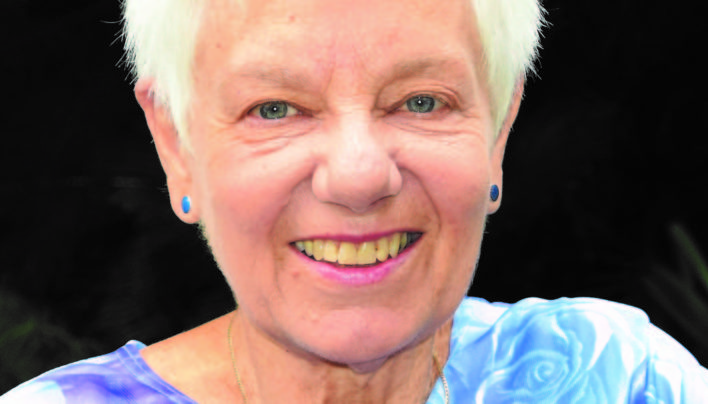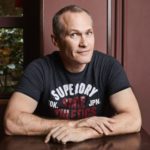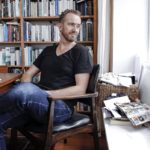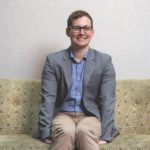Maire Leadbeater shared some of her favourite books and authors with us, including an excellent selection of NZ literature. Maire will be speaking about her new book, Speak No Evil: New Zealand’s Betrayal of the People of West Papua (Otago University Press) in-store, 12-12:45pm Monday 30th July 2018.
Maire Leadbeater grew up in a politically active family, where campaigning for peace and many other causes came with the territory. A former Auckland city and regional councillor, she spent her working life as a social worker, but is now retired and finding more time for writing and for activism. For the past 25 years Maire has campaigned for freedom for East Timor and West Papua. In 2017 she was awarded the Order of Timor-Leste by the Timorese Government. Her previous books are Negligent Neighbour: New Zealand’s collusion with the invasion and occupation of Timor Leste (2006) and Peace, Power and Politics: How New Zealand became nuclear free, published by Otago University Press in 2013. Maire has two adult children and five grandchildren.
See No Evil issues a challenge to New Zealanders. The book begins by relating the little-known history of West Papua, but its focus is on the impact of New Zealand’s foreign policy on the indigenous Melanesian inhabitants. In the 1950s New Zealand supported self-determination for the former Dutch colony, but in 1962 opted to back Indonesia as it took over the territory.
Delving deep into historical government archives, many of them obtained under the Official Information Act, this meticulously researched book uncovers the untold story of New Zealand’s unprincipled and often hypocritical diplomacy. The consequences of repressive Indonesian rule have been tragic for the West Papuan people, who are experiencing ‘slow genocide’. West Papua remains largely closed to foreign journalists, but its story is now beginning to be heard. A growing number of Pacific Island nations are calling for change, but so far New Zealand has opted for caution and collusion to preserve a ‘business as usual’ relationship with Indonesia.
See No Evil is a shocking account by one of New Zealand’s most respected authors on peace and Pacific issues, issuing a powerful call for a just and permanent solution – self-determination – for the people of West Papua.
WHAT ARE YOU CURRENTLY READING AND HOW DID YOU DISCOVER THE BOOK(S)?
James McNeish’s The Sixth Man: The Extraordinary Life of Paddy Costello. Paddy Costello and the NZ Legation in Moscow from 1944 to 1950 was mentioned in a recent Listener article about the book Dr Zhivago. That led me to seek out this book which shines a light on the beginning of the Cold War and on the Soviet Union under Stalin. Costello was a brilliant linguist and scholar – McNeish effectively debunks the spying allegations made against him.
WHO ARE YOUR FAVOURITE WRITERS AND WHAT DO YOU LOVE ABOUT THEM?
I am inspired by many New Zealand novelists, such as Carl Stead, Patricia Grace and Maurice Gee. I was stunned by Lloyd Jones’ The Cage. It is an allegory but shone such a sharp light on a dark side of human nature that it stayed with me for days, and still does! And of course, my mother Elsie Locke, for all of her novels and social history books for young people, for her autobiographical Student at the Gates, for her peace history Peace People and for essays which are less remembered now. I often urge others to read her Looking for Answers which won the Katherine Mansfield prize in 1959.
There is a new young writer to watch too – New Zealander Bonnie Etherington, whose novel The Earth Cries Out was published last year. It is set in West Papua – her lyrical writing is captivating and very moving. She has lived in this ‘hidden’ place and her love for land and people is evident.
Internationally – I have recently discovered Erich Remarque and E.L. Doctorow. Remarque’s stark realism about war and post-war trauma was my antidote to the chauvinism and patriotism that seemed to pervade so much of our World War 1 commemorations. Doctorow’s The Book of Daniel is a masterpiece and for me an insight into the left-wing milieu and the anti-communism of the 50s and 60s – with some parallels to my own childhood.
WHAT BOOKS ARE ON YOUR BEDSIDE TABLE?
The Kalevala – an English translation of the Finnish epic poem by Elias Lonnrot
Your Unselfish Kindness: Robin Hyde’s Autobiographical Writings edited by Mary Edmond-Paul
A Māori Word a Day by Hemi Kelly
Johnson: Whatever Happened To the Hero of Man Alone by Dean Parker
Into the River by Ted Dawe
WHAT IS YOUR FAVOURITE BOOK-TO-FILM ADAPTATION?
Mr Pip from Lloyd Jones’ book of the same name – both book and film are great fiction that tells the truth, I believe.
WHAT BOOK HAVE YOU RE-READ THE MOST AND WHY?
I go back to my books and articles written by Noam Chomsky quite a lot. A special one is How the World Works, because it explains in a very accessible manner the role of the US in geostrategic politics.
WHO IS YOUR FAVOURITE LITERARY CHARACTER?
I don’t think I have a favourite! John Mulgan’s Johnson in Man Alone is unforgettable despite his entrenched reticence.
WHAT BOOK HAVE YOU ALWAYS BEEN MEANING TO READ BUT STILL HAVEN’T GOTTEN AROUND TO?
Steinbeck’s The Grapes of Wrath
WHICH THREE WRITERS WOULD YOU HAVE OVER FOR DINNER?
I am no great cook – so I would invite people I feel comfortable with. Maybe my long-time friend Nicky Hager and the co-writer of his latest book, Hit and Run, Jon Stephenson. I could also include Mandy Hager, Nicky’s sister – I have only met her once briefly, but I love her young adult books and very much enjoyed her latest, Heloise, over the summer holidays.
WHAT WOULD YOU COOK THEM?
Maybe something like a spicy chickpea dish – to accommodate the vegetarians.
HOW ARE YOUR BOOKS SHELVED AND ORGANISED AT HOME?
My mother Elsie Locke’s books are in pride of place in the lounge along with other New Zealand novels. My specialist political and history books – close at hand in my study. Less frequently referred to books in the hall.
WHAT IS YOUR FAVOURITE LITERARY QUOTE?
Minke, the hero of Pramoedya Ananta Toer’s House of Glass answers his interrogator who wants him to agree not to become involved in politics or organising:
“Do you mean that I have to go and live by myself on top of a mountain? Everything is political! Everything needs organisation. Do you gentlemen think that the illiterate farmers who spend their lives hoeing the ground are not involved in politics? The moment they surrender a part of their little crop to the village authorities as tax, they are carrying out a political act, because they are acknowledging and accepting the authority of the government. Or do you mean by politics just those things that make the government unhappy? While those things that make the government happy are not political? And tell me, who is it that can free himself from involvement in organisation. As soon as you have more than two people together, you already have an organisation”.
A QUESTION FROM PREVIOUS AUTHOR INTERVIEWEE, JOHN DUNMORE:
“Why don’t people buy more books?”
Maybe partly cost? The library request system is too efficient?






